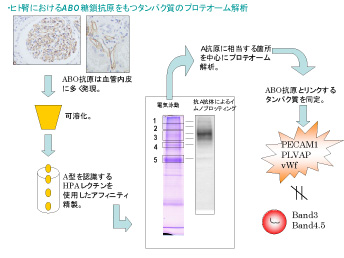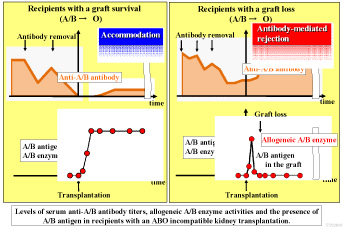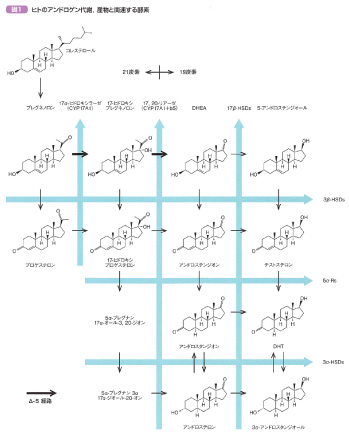Urology
HOME > Activities > Clinical Medicine > Urology
1.Research Summary
Urology is a field of medical care in which various diseases of the adrenal gland, kidney, urinary tract, and male genitalia are diagnosed and studied by taking advantage of surgical and medical methods (see website of the Japanese Urological Association).The Department of Urology is divided into the Urological Oncology Group, Male Function Group, Kidney Transplantation Group, and Urinary Physiology Group, and is currently conducting intensive research on kidney transplantation and urological oncology.
2.Research Groups
- Kidney Transplantation Group
- Urinary Oncology Group
3-1.Kidney Transplantation Group
Research subjects
- ① Immunological accommodation in ABO-incompatible kidney transplantation
(Kaken A, Kaken C)
Since the shortage of organ transplants has become a worldwide problem,
We have successfully performed the first ABO-incompatible kidney transplantation
in January 1989 and spent tremendous efforts to advance this procedure
for more than a quarter century to date. To control acute antibody-associated
rejection caused by the recipient’s anti-A/B antibody against the donor
blood type, we have implemented various strategies since the beginning.
We reported that a new treatment strategy based on desensitization incorporating
rituximab, which controls B cells, yields good graft survival rates. Furthermore,
we discovered and reported that the ABO histo-blood type antigens expressed
on renal vascular endothelial cells were different from those on red blood
cells for the first time. Therefore, we have recently concluded that transplantation
could be successfully performed without removing anti-A/B antibodies even
if even if the recipient’s had relatively high antibody titer measured
by using red blood cells.
The induction mechanism of immunological accommodation that occurs after
ABO-incompatible kidney transplantation has not yet been elucidated, however,
we have thus been investigating this mechanism from various aspects, including
alteration of the antigenicity of ABO histo- blood group antigens, modulation
of host immunity, especially in antibody production by B cells and plasma
cells, and changes in complement regulation factors.
References
- Takahashi K et al. Excellent long-term outcome of ABO-incompatible living donor kidney transplantation in Japan. Am J Transplant. 2004 Jul;4(7):1089-96.
- Takahashi K. A new concept of accommodation in ABO-incompatible kidney transplantation. Clin Transplant. 2005;19 Suppl 14:76-85. Review.
- Saito K et al. Pinpoint targeted immunosuppression: anti-CD20/MMF desensitization with anti-CD25 in successful ABO-incompatible kidney transplantation without splenectomy. Xenotransplantation. 2006 Mar;13(2):111-7.
- Takahashi K, Saito K. Present status of ABO-incompatible kidney transplantation in Japan. Xenotransplantation. 2006 Mar;13(2):118-22.
- Takahashi K. Recent findings in ABO-incompatible kidney transplantation: classification and therapeutic strategy for acute antibody-mediated rejection due to ABO-blood-group-related antigens during the critical period preceding the establishment of accommodation. Clin Exp Nephrol. 2007 Jun;11(2):128-41. Epub 2007 Jun 28. Review.
- Tasaki M et al. Identification and characterization of major proteins carrying ABO blood group antigens in the human kidney. Transplantation. 2009 Apr 27;87(8):1125-33.
- Takahashi et al. Mechanism of acute antibody-mediated rejection in ABO-incompatible kidney transplantation: which anti-A/anti-B antibodies are responsible, natural or de novo? Transplantation. 2010 Mar 15;89(5):635-7.
- Tasaki M et al. Detection of allogeneic blood group A and B enzyme activities in patients with ABO incompatible kidney transplantation. Glycobiology. 2010 Oct;20(10):1251-8
- Takahashi K .Saito K. ABO-incompatible kidney transplantation. Transplant Rev (Orlando). 2013 Jan;27(1):1-8.
- ② The development of the rapid detection system for antiviral resistance mutation in
human Cytomegalovirus in kidney transplant recipients(Research Award Prize from Japan Society for
Clinical Renal Transplantation: Multicenter collaborative Study)
References
- Daikoku T, Saito K. et al. Rapid detection of human cytomegalovirus UL97 and UL54 mutations for antiviral resistance in clinical specimens. Microbiol Immunol 2013; 57: 396–399.
- ③ Renal anemia after kidney transplantation
④ Pharmacokinetics of immunosuppressants
3-2.Urinary Oncology Group
Research subjects
Mechanism of androgen signals in prostate cancer cells
Collaborative research on BCG therapy for 2ndTUR-negative cases in pT1G3
bladder cancer (JCOG)
Collaborative research on the establishment of regions for lymph node dissection
in renal pelvic and ureter cancer (JCOG)
Prognosis and QOL after intensity-modulated radiation therapy and brachytherapy
for prostate cancer (collaborative research with the Department of Radiology)
Multicenter study of sorafenib and sunitinib administered by crossover
design for renal cell cancer.
Multicenter study on the optimal dosing interval of zoledronic acid for
cM1b prostate cancer.
4.Research results
|
[Area] Kidney transplantation |
|
|
[Research subject] ABO-incompatible renal transplantation |
|
|
[Description] |
[Photographs] Fig 1
Fig 2
|
|
[Area] Urologic oncology |
|
|
[Research subject] Mechanism of androgen signals in prostate cancer cells |
|
|
[Description] [1] http://www.ncbi.nlm.nih.gov/pubmed/15534082 |
[Photographs]
|
Please see the Urology website for a detailed description of our research.



